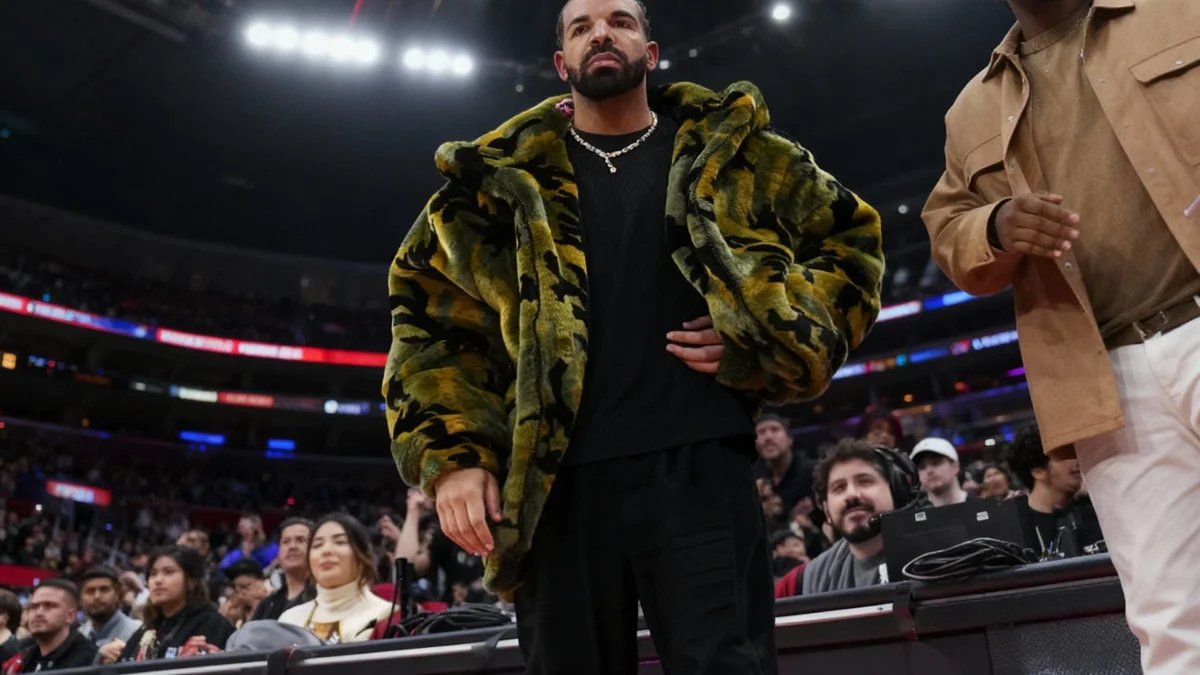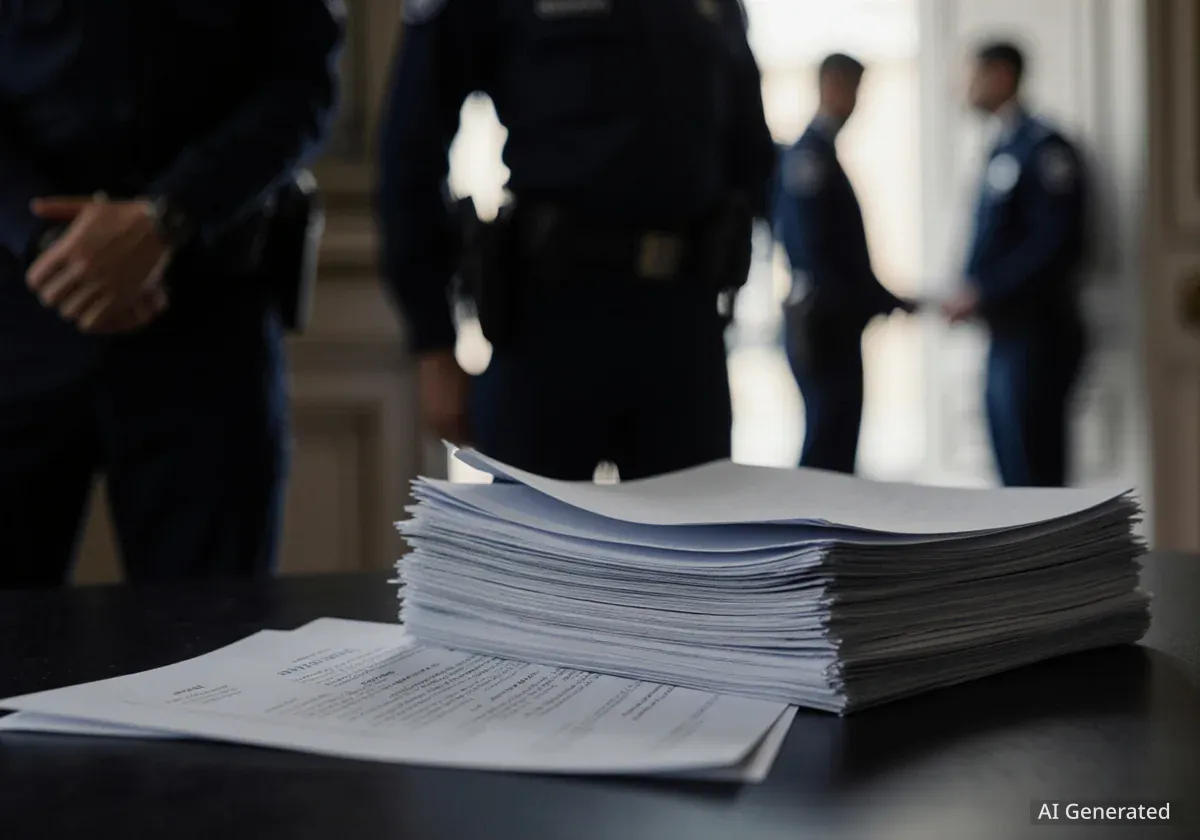A new class-action lawsuit filed recently claims that Spotify has knowingly profited from widespread streaming fraud, potentially costing artists hundreds of millions of dollars in lost revenue. The suit, brought by rapper RBX, suggests that the platform overlooks "billions of fraudulent streams" each month, using inflated user numbers to boost its advertising revenue.
The legal action highlights the case of Drake, one of Spotify's most streamed artists, alleging that a significant portion of his 120 billion streams were artificially generated. This lawsuit could have far-reaching implications for how streaming services monitor and combat fraudulent activity.
Key Takeaways
- Rapper RBX filed a class-action lawsuit against Spotify, alleging the platform profits from fraudulent streams.
- The lawsuit claims Spotify overlooks billions of fake streams monthly, inflating user numbers for higher ad revenue.
- Drake's streaming numbers are cited as a prime example, with allegations of 37 billion inauthentic streams between January 2022 and September 2025.
- Artists could be owed hundreds of millions in lost royalties due to this alleged fraud.
- Spotify denies the allegations, stating it invests heavily in combating artificial streaming.
Allegations of Irregular Streaming Patterns
The lawsuit details what it describes as "staggering and irregular" streaming patterns for some of Drake's music. While most artists experience an initial surge in streams upon release, followed by a gradual decline, some of Drake's tracks allegedly saw significant, unexplained upticks months and even years after their initial release. This pattern, according to the lawsuit, suggests the involvement of bot networks.
One of the most striking claims involves individual accounts reportedly listening to Drake's music "exclusively" for up to 23 hours a day. Such activity, the lawsuit argues, should have been a clear red flag for Spotify's detection systems. The legal team behind the suit states these claims are based on "information and belief," expecting further evidence to emerge during discovery.
Fact Check: Drake's Streaming Milestones
- Drake became the first artist to achieve 120 billion total streams on Spotify.
- The lawsuit alleges approximately 37 billion of these streams, between January 2022 and September 2025, were inauthentic.
Financial Impact on Other Artists
The core of the class-action lawsuit centers on the financial harm to other artists. Spotify's royalty payment model allocates a limited pool of money based on each song's proportional share of total streams. If a significant number of streams are fraudulent, it directly reduces the revenue share for legitimate artists.
"Given the way Spotify pays royalty holders, allocating a limited pool of money based on each song’s proportional share of streams for a particular period, if someone cheats the system, fraudulently inflating their streams, it takes from everyone else," stated Mark Pifko of Baron & Budd, an attorney representing RBX.
The lawsuit estimates that losses to other artists, stemming from the alleged fake boosting of Drake's streams alone, could be in the hundreds of millions of dollars. Actual damages, including punitive damages, will be determined at trial, and are expected to be much higher. The proposed class action could cover over 100,000 rights holders who have collected royalties since January 1, 2018.
Spotify's Alleged Negligence
The lawsuit claims that Spotify either negligently or willfully turned a blind eye to these fraudulent activities. It suggests that while Spotify has publicly discussed efforts to combat streaming fraud, its measures are "insufficient." The platform, it alleges, is particularly vulnerable to "Bot Vendors" who design bots to mimic human behavior and evade detection.
Understanding Streaming Fraud
Streaming fraud involves artificially inflating play counts using automated bots or other deceptive methods. This practice can skew charts, divert royalty payments from legitimate artists, and distort advertising metrics for platforms.
Geographic Anomalies and VPN Use
Further evidence cited in the lawsuit includes strange geographic patterns in streaming data. For example, during a four-day period in 2024, the lawsuit alleges that "at least 250,000 streams of Drake’s song ‘No Face’ originated in Turkey but were falsely geomapped through the coordinated use of VPNs to the United Kingdom." This suggests a deliberate effort to mask the true origin of the streams.
The lawsuit also points to instances where "massive amounts of music streams, more than a hundred million streams, originated in areas with zero residential addresses." Additionally, geohash data allegedly shows that nearly 10 percent of Drake’s streams came from users whose location data indicated they traveled a minimum of 15,000 kilometers in a single month. This includes "consecutive plays separated by mere seconds but spanning thousands of kilometers," such as over 500 kilometers between songs, roughly the distance from New York City to Pittsburgh.
The lawsuit suggests Spotify could mitigate much of this activity by requiring credit card information for free, ad-supported accounts. However, it claims Spotify avoids this measure because it has an "incentive for turning a blind eye" to fraud, as higher stream volumes allow it to charge more for ads.
Spotify's Response and Industry Efforts
Spotify has publicly denied the allegations, stating that it does not benefit from artificial streaming. A spokesperson for the platform indicated that Spotify "heavily invest[s] in always-improving, best-in-class systems to combat it and safeguard artist payouts with strong protections like removing fake streams, withholding royalties, and charging penalties."
The company has previously acknowledged to investors that artificial streams "may contribute, from time to time, to an overstatement" in reported monthly average users, a metric crucial for ad revenue. Spotify also states it takes artificial streaming seriously, promising to withhold royalties and correct public streaming numbers regardless of the artist's stature.
In 2023, Spotify joined the Music Fights Fraud Alliance (MFFA), an industry coalition aimed at combating streaming fraud. The MFFA's executive director, Michael Lewan, noted that the alliance is "relatively nascent" but is working to "improve coordination and communication amongst member companies" to identify and disrupt suspicious activity, including data sharing. Member companies include Spotify, Amazon, CD Baby, SoundCloud, and Meta apps.
Despite these efforts, RBX's lawsuit alleges that Spotify remains "one of the easiest platforms to defraud using Bots due to its negligent, lax, and/or non-existent—Bot-related security measures." The legal battle will likely focus on the evidence presented to support these claims and Spotify's internal data on fraud detection.




